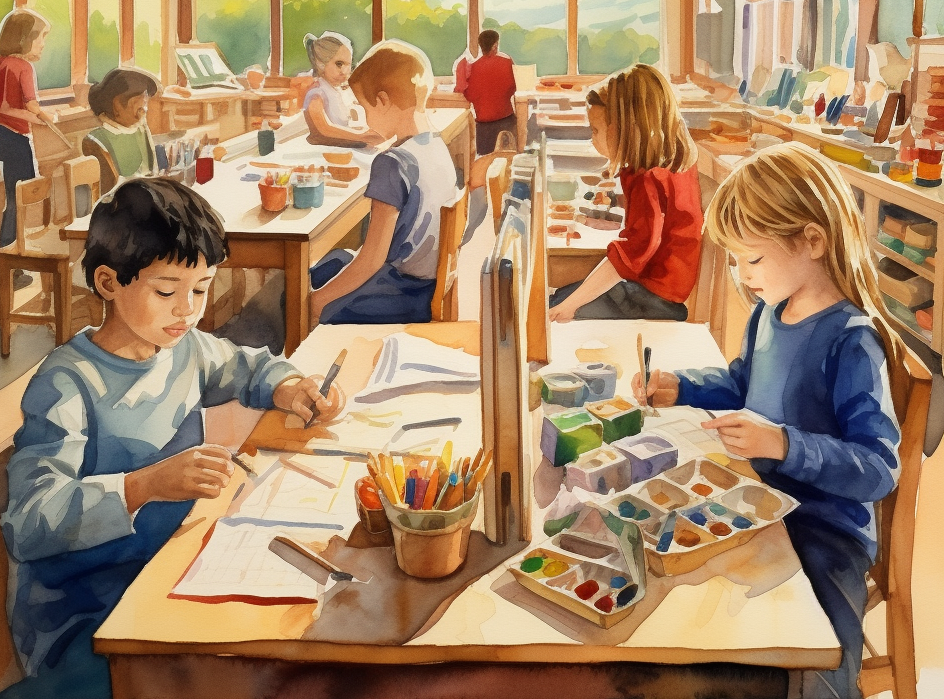Many parents who start their children in the Primary Montessori classroom wonder what the future holds for their child’s education and can it continue in Montessori Methods. Yes, in fact, building on those important core principles is key to developing a broader knowledge of what was learned.
How? Here are few points to consider:
- Subject Expansion: In the 6-9 age range, Montessori students delve deeper into subjects. For example, in language, they move from phonetic reading to reading comprehension and grammar. They explore more complex math concepts, like multiplication and division.
- Cultural Studies: The 6-9 curriculum introduces cultural studies, including geography, history, and science. For instance, they might study ancient civilizations, explore the concept of time, or learn about the solar system.
- Practical Life Skills: While practical life activities are still part of the curriculum, they become more advanced. Children might learn to cook, sew, or perform more complex tasks independently.
- Collaboration: Social development continues to be a focus, with an emphasis on teamwork, conflict resolution, and community projects. They might work on group research projects or community service initiatives.
- Freedom with Responsibility: Just like in the 3-6 curriculum, students have freedom within limits. They take on more responsibilities for their own learning and are expected to manage their time and work independently.
- Montessori Materials: While the iconic Montessori materials are still used, they become more abstract and advanced. For example, the wooden Decimal System is introduced for math, allowing children to work with larger numbers.
- Field Trips and Exploration: Older Montessori students often go on field trips to enhance their learning experiences. These might include visits to museums, historical sites, or nature reserves.
- Assessment: Montessori assessment is usually ongoing and more holistic. Teachers observe and document a child’s progress rather than relying on traditional tests or grades.
In essence, the 6-9-year-old Montessori curriculum builds upon the foundation laid in the 3-6 age range, nurturing a child’s natural curiosity and independence while introducing more complex academic and practical life skills. It’s like taking the seeds planted in the early years and helping them grow into sturdy trees of knowledge and self-reliance.
